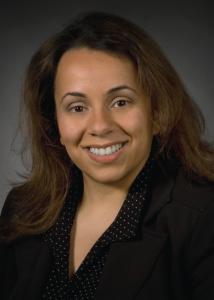Apr 20 2013
A researcher at The Feinstein Institute for Medical Research has discovered additional mechanical properties of articular cartilage, a protective cartilage on the ends of bones that wears down over time, resulting in the development of osteoarthritis. The findings are published in the April issue of PLOS ONE.
 Nadeen Chahine, PhD
Nadeen Chahine, PhD
To better understand the onset and progression of osteoarthritis, Nadeen Chahine, PhD, and collaborators at other institutions looked at cells from articular cartilage using atomic force microscopy (AFM). They used this technology to measure the mechanical properties of single cells to uncover what gives them integrity versus what wears them down with aging. They found in animal models that the mechanical properties of the cells are higher in adult tissue compared to young or old tissue, which is consistent with the higher loads on joints in adults than joints in infants. Furthermore, they found that vimentin, an intermediate filament (IF) protein, is a key contributor to the integrity of the cells.
"This research is exciting because we are using cutting-edge instrumentation to understand the mechanobiology of cells and cartilage, and what might cause or prevent osteoarthritis," said Nadeen Chahine, PhD, director of the Bioengineering-Biomechanics Laboratory at the Feinstein Institute. "Osteoarthritis is the most common form of arthritis, and patients who suffer from the disease experience joint pain, tenderness, stiffness and locking.
It is my hope that this and additional research into articular cartilage will provide insight into how we may be able to alleviate these disruptive symptoms of osteoarthritis through innovative research at the interface of mechanics and biology."